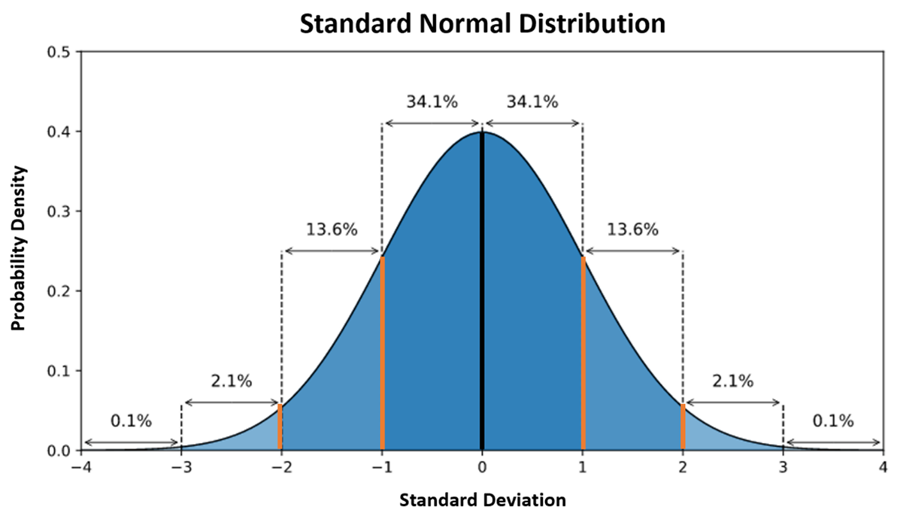3. Z score, normal distribution
1/8
There's no tags or description
Looks like no tags are added yet.
Name | Mastery | Learn | Test | Matching | Spaced |
|---|
No study sessions yet.
9 Terms
How to calculate z scores
score-mean/standard deviation
Z score
a way to measure how far from the mean each of your data values are using a standardized scale
Stat Crunch: calculating z score
click stat at the top
click calculations
click normal distributions
type in number
what type of distribution do z scores follow?
normal distribution
normal distribution
a probability distribution that is symmetric about the mean, showing that data near the mean are more frequent in occurrence than data far from the mean
mean=median=mode
total area under the curve is 1
the curve never touches the x axis (it is infinite)

What number is considered a significantly high or low Z score?
+2 is considered high
-2 is considered low

probability distribution
a statistical function that describes all the possible values and likelihoods that a random variable can take within a given range
simple terms: describes how likely the values of a variable are to occur
continuous distribution
uncountable number of possible outcomes (interval based)
discrete distribution
a countable number of possible outcomes (ex: yes or no questions)